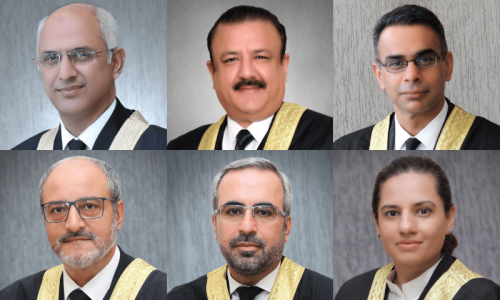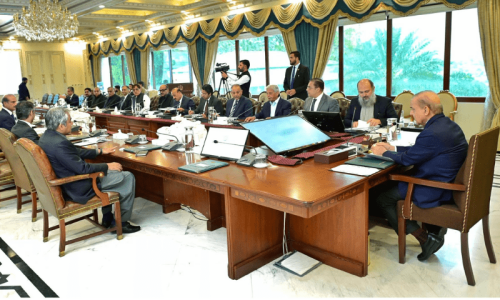SEOUL: North Korea launched a long-range rocket on Sunday carrying what it called a satellite, but its neighbours and the United States denounced the launch as a missile test, conducted in defiance of UN sanctions and just weeks after a nuclear bomb test.
The US Strategic Command said it had detected a missile entering space, and South Korea’s military said the rocket had put an object into orbit.
North Korea said the launch of the satellite Kwangmyongsong-4, named after late leader Kim Jong Il, was a “complete success” and it was making a polar orbit of Earth every 94 minutes. The launch order was given by his son, leader Kim Jong Un, who is believed to be 33 years old.
The launch prompted South Korea and the United States to announce that they would explore the feasibility of deploying an advanced missile defence system in South Korea, which China and Russia both oppose, “at the earliest possible date”.
North Korea’s state news agency carried a still picture of a white rocket that closely resembled a previously launched rocket, lifting off. Another showed Kim surrounded by cheering military officials at what appeared to be a command centre.
The rocket lifted off at around 9:30am Seoul time on a southward trajectory, as planned. Japan’s Fuji Television Network showed a streak of light heading into the sky, taken from a camera at China’s border with North Korea.
Pyongyang says it will continue to launch rockets carrying satellites
North Korea had notified UN agencies that it planned to launch a rocket carrying an Earth observation satellite, triggering opposition from governments that see it as a long-range missile test.
North Korea’s National Aerospace Development Administration called the launch “an epochal event in developing the country’s science, technology, economy and defence capability by legitimately exercising the right to use space for independent and peaceful purposes”.
The launch and the Jan 6 nuclear test are seen as efforts by the North’s young leader to bolster his domestic legitimacy ahead of a ruling party congress in May, the first since 1980.
North Korea’s embassy in Moscow said in a statement the country would continue to launch rockets carrying satellites, according to Russia’s Interfax news agency.
Missile defence system
South Korea and the United States said that if the advanced missile defence system called Terminal High Altitude Area Defence (THAAD) was deployed to South Korea, it would be focused only on North Korea.
South Korea had been reluctant to discuss openly the possibility of deploying THAAD.
“North Korea continues to develop their nuclear weapons and ballistic missile programmes, and it is the responsibility of our alliance to maintain a strong defence against those threats,” Gen Curtis M. Scaparrotti, US Forces Korea commander, said in a statement.
“THAAD would add an important capability in a layered and effective missile defence.”
South Korea’s military said it would make annual military exercises with US forces “the most cutting-edge and the biggest” this year.
US Secretary of State John Kerry said the United States would work with the UN Security Council on “significant measures” to hold North Korea to account for what he called a flagrant violation of UN resolutions on North Korea’s use of ballistic missile technology.
South Korea’s navy retrieved what it believes to be a fairing used to protect the satellite on its journey into a space, a sign that it is looking for parts of the discarded rocket for clues into the isolated North’s rocket programme, which it did following the previous launch.
China expressed regret over the launch and called on all sides to act cautiously and refrain from steps that might raise tension. China’s foreign ministry said late on Sunday that it had summoned the North Korean ambassador to “make representations and make clear China’s principled position”.
China is North Korea’s main ally, but it disapproves of its nuclear weapons programme.
Russia, which has in recent years forged closer ties with North Korea, said the launch could not but provoke a “decisive protest”, adding Pyongyang had once again demonstrated a disregard for norms of international law.
Published in Dawn, February 8th, 2016
















































Dear visitor, the comments section is undergoing an overhaul and will return soon.